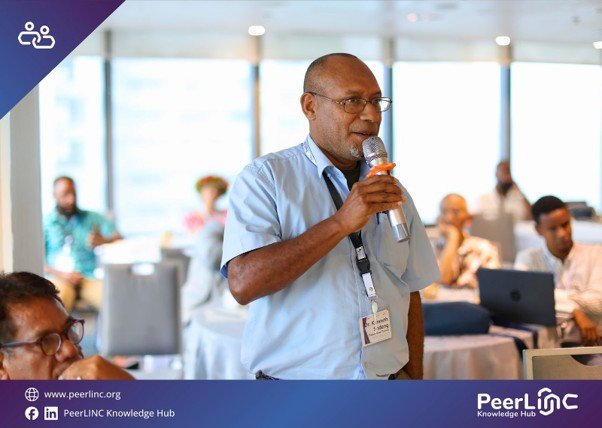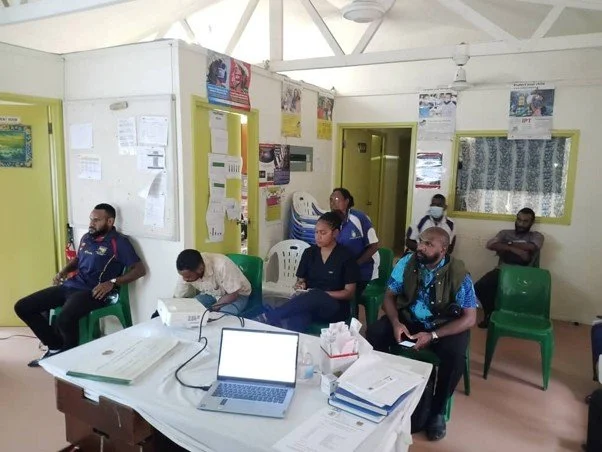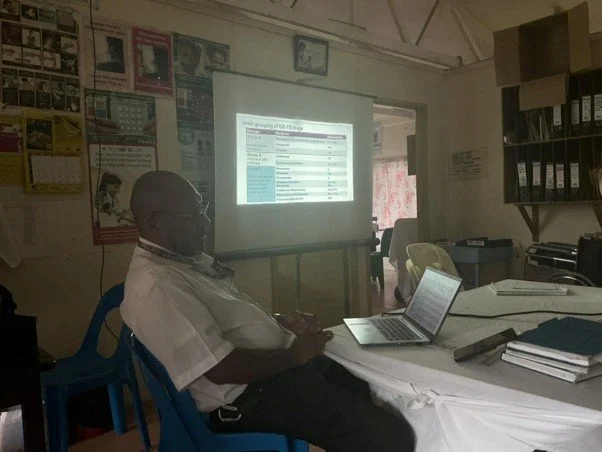Echo Sessions in Papua New Guinea Strengthen DR-TB Care After PeerLINC Regional Training
When Dr. Kenneth Sodeng came home to Lae, Papua New Guinea after the PeerLINC Regional Training for Pacific Islands and Somalia held in Manila from October 6 to 10, he acted quickly to carry the learning forward. Within a week of his return, he organized echo sessions at ANGAU Memorial Provincial Hospital (AMPH) so his team could review the updated approaches to managing drug-resistant tuberculosis together and discuss how to apply them in daily clinical practice.
As an internal medicine physician at AMPH, Dr. Sodeng works closely with the team managing patients with drug-resistant tuberculosis (DR-TB). He explained that strengthening DR-TB care goes beyond familiarity with protocols; it also depends on building team confidence to make sound clinical decisions. The echo sessions were designed to be practical and immersive, held at AMPH during regular working hours so medical officers and nurses could attend without disrupting patient services.




The first session introduced the BPaLM/ BPaL regimen and key considerations for selecting shorter, all-oral treatment options on October 22. This was followed by a session on peripheral neuropathy on October 29, a discussion on optic neuritis on November 5, and the final session on QT prolongation on November 12. Each session used the same PeerLINC training materials from Manila to maintain alignment with the latest clinical guidance of the World Health Organization (WHO).
Dr. Sodeng said his aim was straightforward: “to build capacity for my team so that they too can feel confident in managing DR-TB patients.” He emphasized that when the entire clinical team shares the same understanding of why and how treatment decisions are made, patient care becomes more consistent despite external challenges.
Those challenges are real. Papua New Guinea has already implemented shorter DR-TB regimens; still, teams continue to navigate challenges common in high-burden, resource-constrained settings, including limited laboratory support and intermittent stockouts of key medicines, such as linezolid. In this context, the echo sessions provided an opportunity to discuss these realities openly, compare clinical decision-making approaches, and identify where small adjustments could improve outcomes. “From the new information, we realized some mistakes we were blindly making and aim to improve in certain areas,” he reflected.
The field visits during the Manila training helped him see how decentralized DR-TB care can function effectively at primary-level centers. Seeing decentralized DR-TB care and observing how teams in San Juan and Mandaluyong structured follow-up and documentation helped him visualize how systems and workflows can support decision-making and continuity of care. Bringing these insights back to Lae allowed him to contextualize the training for his own setting.
“The PeerLINC experience was very important and vital for my practice,” he shared. “I will definitely recommend PeerLINC to my colleagues.”
Dr. Sodeng has scheduled additional echo sessions in Lae in the coming weeks, including case discussions and nurse-led perspectives, to continue building shared clinical confidence across the facility. Through his efforts, what began as a regional training has now become a locally sustained practice of peer learning embedded within the clinical team, adapted to real-world constraints, and driven by a shared commitment to improving tuberculosis care.
